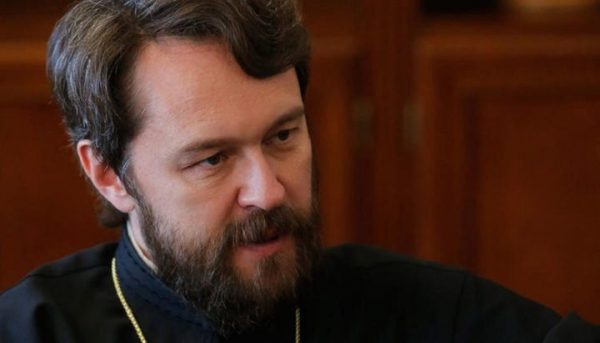Metropolitan Hilarion of Volokolamsk, Chairman of the Department for External Church Relations of the Moscow Patriarchate, said that pastoral necessity is the reason for the discussion within the Church whether the use of modern biotechnologies and practices is permissible, as well as for the consideration of other issues of bioethics.
Speaking in the Church and the World program about the draft document “Ethical Problems Associated with the Method of In Vitro Fertilization” prepared by the Inter-Council Presence and proposed for general discussion in the Church, the metropolitan stated, “This document is for discussion. Moreover, it states that there are different opinions on this issue within the Russian Orthodox Church. There is an opinion that IVF is absolutely unacceptable in any form. There is also an opinion (and the document includes it), according to which, in vitro fertilization is possible under certain conditions.”
In particular, among these conditions, there are prohibitions on the killing of the “excess” embryos or their cryopreservation and on the use of donor germ cells.
“The document was created by the Inter-Council Presence in the Commission for Theology and Theological Education, which I’m the head of. We discuss issues of bioethics in this commission: we take one bioethical issue after another, discuss it and prepare draft documents,” said Metropolitan Hilarion of Volokolamsk.
He said this question on how to define the boundaries of what is acceptable in the field of biotechnology is very delicate and complicated.
Speaking about how this topic is being discussed in the Inter-Council Presence of the Russian Orthodox Church, the metropolitan stated, “I must admit that this is a very difficult question for us, because, for example, I am a clergyman and a monk – what can I really know about childbirth, donor cells, and so on? Certainly, we can learn something from the relevant literature, but in order to give a competent answer, it is necessary to involve specialists. We involve such specialists, and they participate in the discussion at the preparatory stages. In addition, we involve those of our clergy and laity who specialize in this particular subject.”
At the same time, he emphasized that the discussion of these topics “is not caused by a desire to create a theoretical basis for a particular practice, but a living and urgent pastoral need.”
He also mentioned that there was no unity on the issue of IVF even among the members of the commission, “We have prepared this document, specified the existing points of view in it, and now the Church has to determine whether in vitro fertilization is permissible if certain conditions are met, or whether it is absolutely inadmissible under any circumstances.”
You can follow Pravmir.com on Twitter, Facebook, Instagram, Telegram, or Parler

















